It may be overwhelming when your whole vegetable garden harvest time begins all at once.
You need to deal with tons of fresh vegetables and fruit, preparing them for storage, and also figure out how much of each you need to can and what shall be saved for being eaten fresh.
And naturally, a reasonable question arrives: when does canning season begin at all?
Since what we often see is that people begin to make canned foods in summer and finish doing it quite late in autumn. So is this season so extended?
Today we tried to dive deeper into this question and figure out whether there are any specified dates for the annual canning season, how to get ready for canning your harvest, and what foods are considered better than others for canning.
When Is the Canning Season?
Well, to make it short and clear, there are no specific dates that tell you when you need to start canning your harvest and when you should stop doing this.
As a rule of thumb, we begin this whole “canning thing” closer to the end of summer and finish it in autumn.
Of course, if you want more precise data, or in case you have your own garden, you can make use of a canning season calendar.
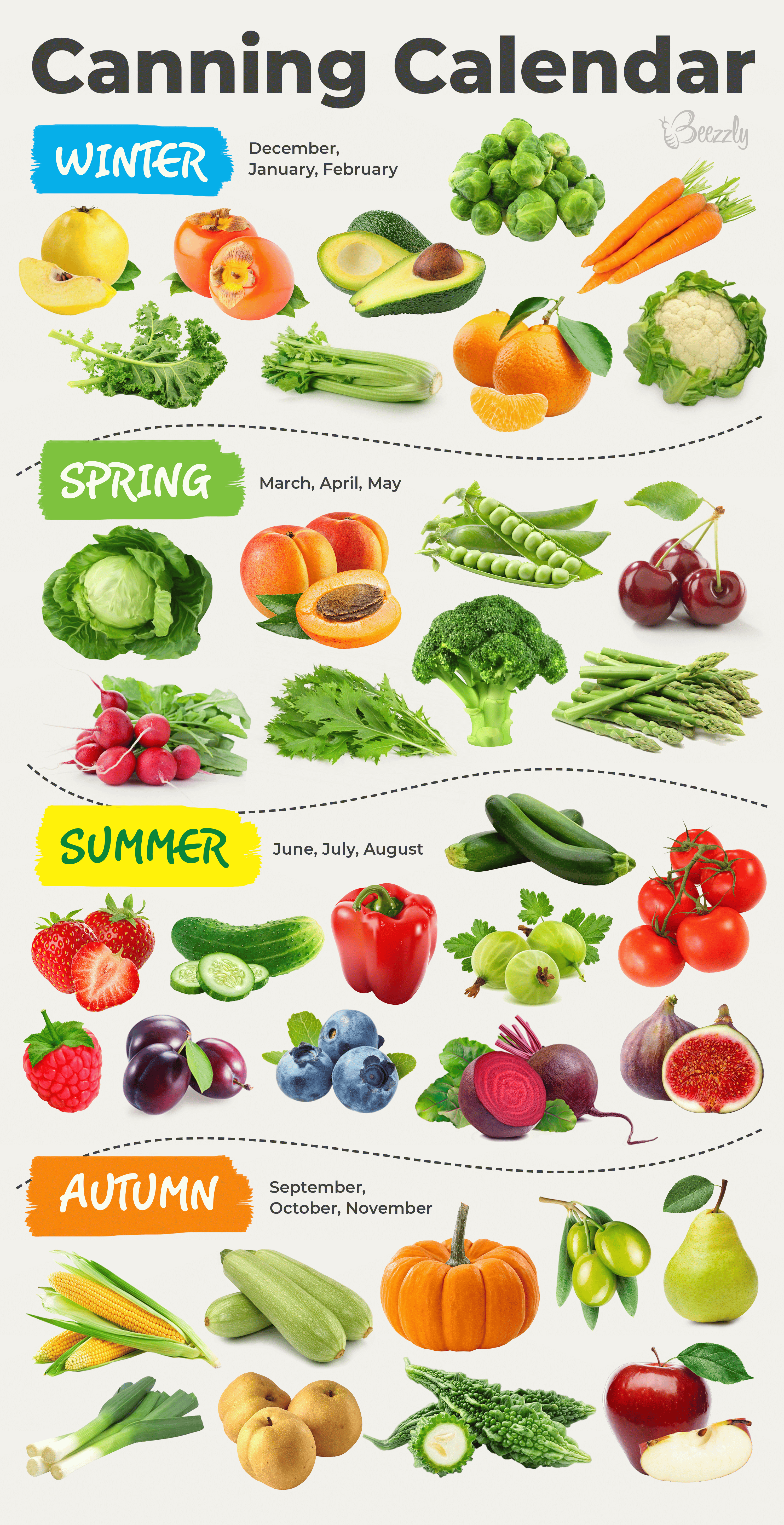
Like this, you will always know exactly what season is best for what type of canning, and thus what fruits or veggies are supposed to be preserved during that time.
But in general, you can stick to the following guide:
- Spring is the season for pickled radishes (April), as well as pickled asparagus and rhubarb jam (May), and March is more suitable for pickled beets and carrots.
- Summer is the hottest canning season! Strawberry jam in June, zucchini relish, berry jams, canned whole cherries, and even pickled garlic in July, and August filled with dill pickles, red pepper jam, corn salsa, tomato relish, whole peaches in cans, and pickled green beans.
- Autumn comes with pear butter and grape jelly, apple chutney and mincemeat, and cauliflower piccalilli.
- Finally, you can even do canning in winter! Orange marmalade, cranberry sauce, mustard, and pickled onions will keep you busy right until Christmas time!
With that in mind, you can now approximately imagine when you should start canning certain veggies or fruits.
But basically, as you can see, it is always a good time for some canning or pickling!
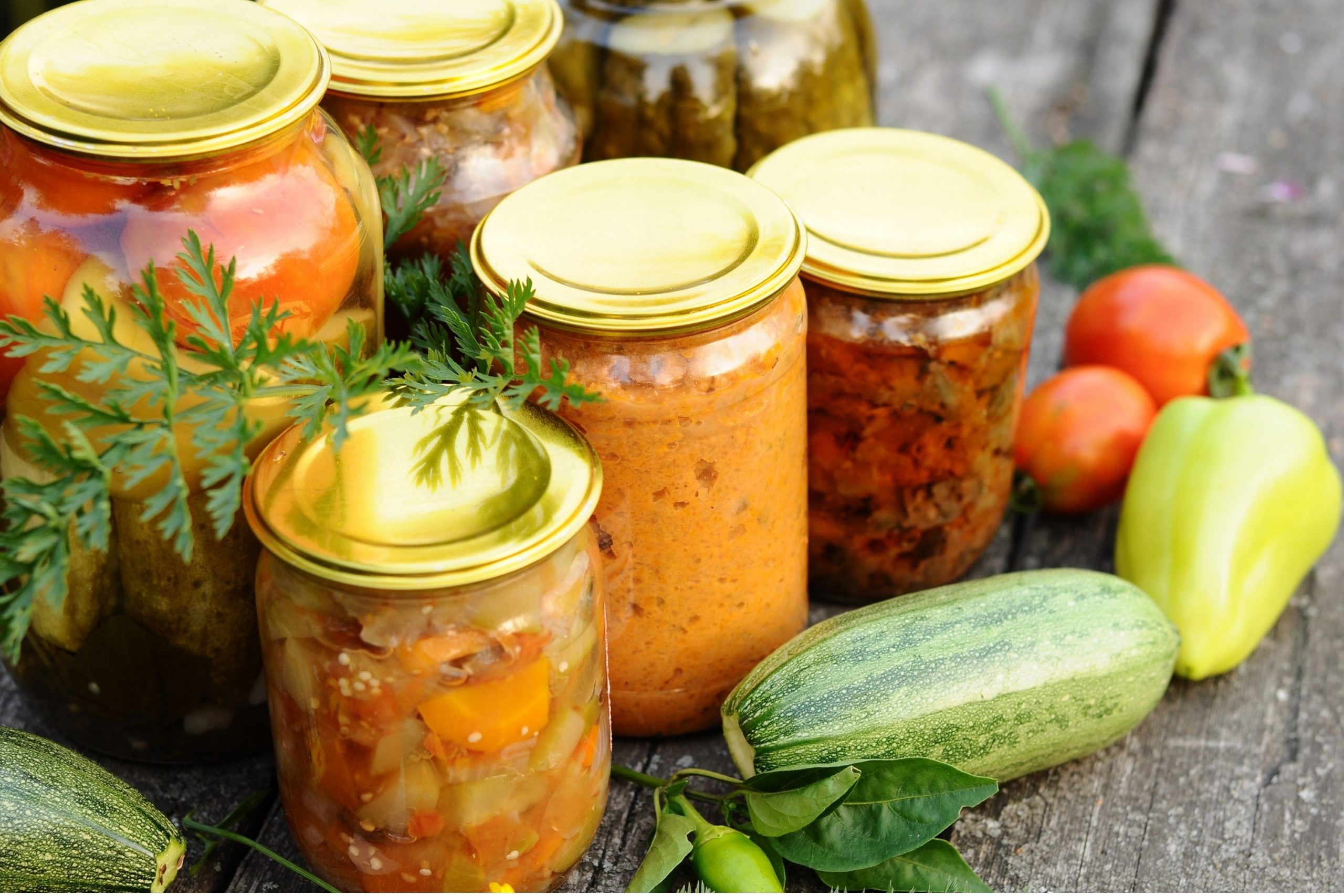
Canning Is Coming! How to Get Ready For the Hottest Season In Your Kitchen?
You might think that there is nothing to get ready for. You just harvest your veggies and/or fruits, and sort them into cans, seal, and leave on your pantry shelves until you are craving for something sour or spicy during the winter colds.
However, things are a bit more complicated with that! To be able to go through the whole canning process easily and with no tension or stress, it is always good to know a few handy life hacks.
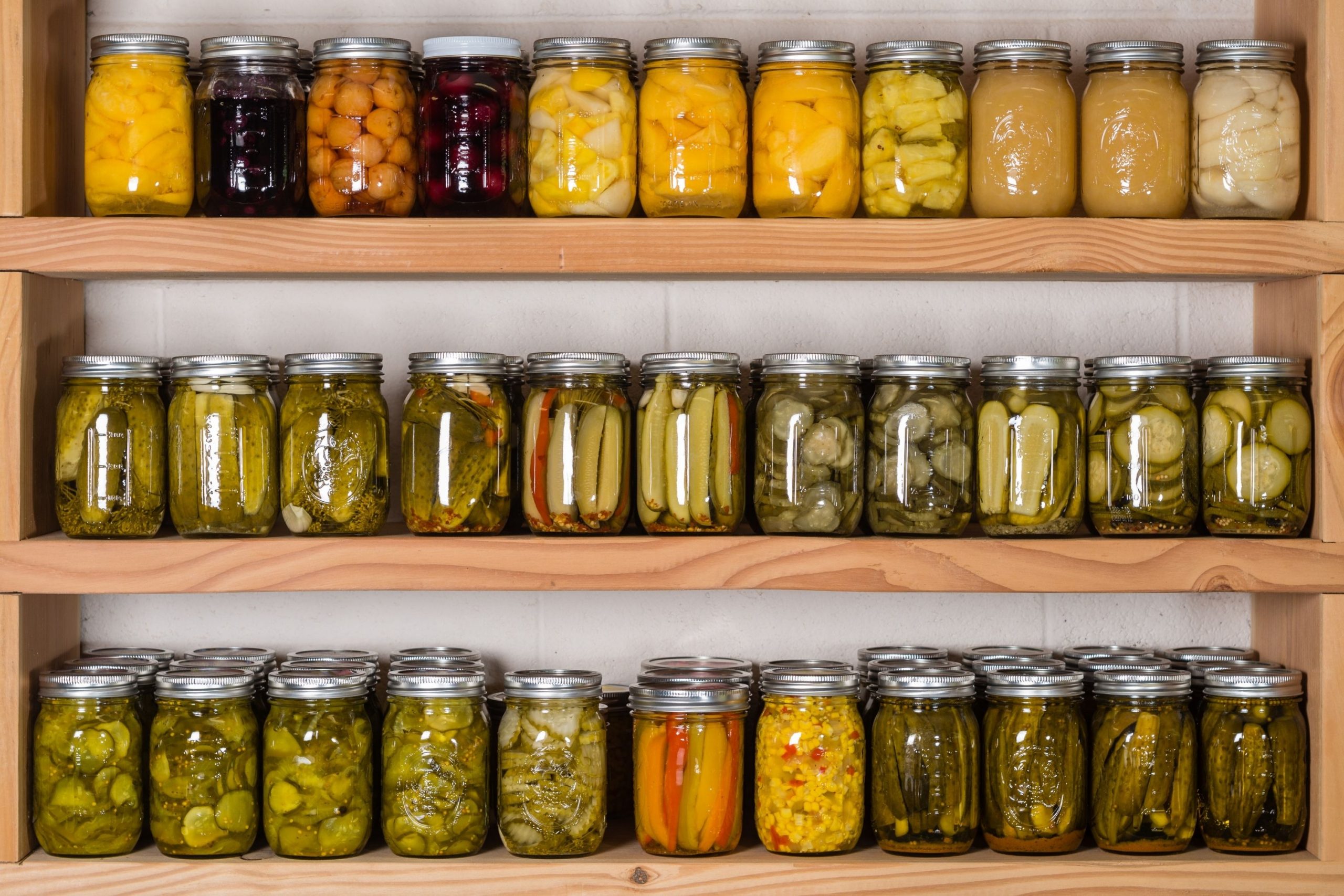
Like that, you will be able to prepare canned foods more effectively and quickly.
- Check your canners over. Wash them with soapy water and rinse. Also, make sure they have no cracks, breakages, or chips on them. Also, the handlers must be secure for holding the weight of a filled canner.
- Collect all of your canning utensils. Jar rack, magnetic lid lifter, bubble popper, canning funnel, ladle, and jar lifter. Wash them all in soapy water, rinse and dry.
- Organize your jars. Sort them through and arrange by size. Check for any cracks and chips. Also, take inventory of all the empty canning jars you have to know exactly how many of them you have and how many you will need more.
- Buy lids and rings. And throw away the rings that are distorted, dented, or rusty.
- Review your canning recipes, refresh the lists of ingredients needed, and remind yourself of the amount of harvest needed for each procedure.
- Inventory your canning ingredients, such as vinegar, sugar, pectin, salt, spices, citric acid, etc. Throw away old and expired items and replace them with fresh ones.
With this brief guide, you will always be ready for the canning season having all of your utensils and appliances working properly, and all the ingredients and spices being ready for use!
Our Top List Of the Best Things to Can For Winter
If you are not a canning veteran with years of experience in preserving foods, you might be wondering what veggies and fruits are the best for being stored in cans.
It makes sense if you have to spend time on growing them since you need to know what to sew in order to get a delicious harvest later that you would preserve.
But even if this is not your case and you simply buy veggies for canning, it might still be useful to know what is regarded as the best for canning. So we tried to make a small investigation and we figured out that there are plenty of options to choose from!
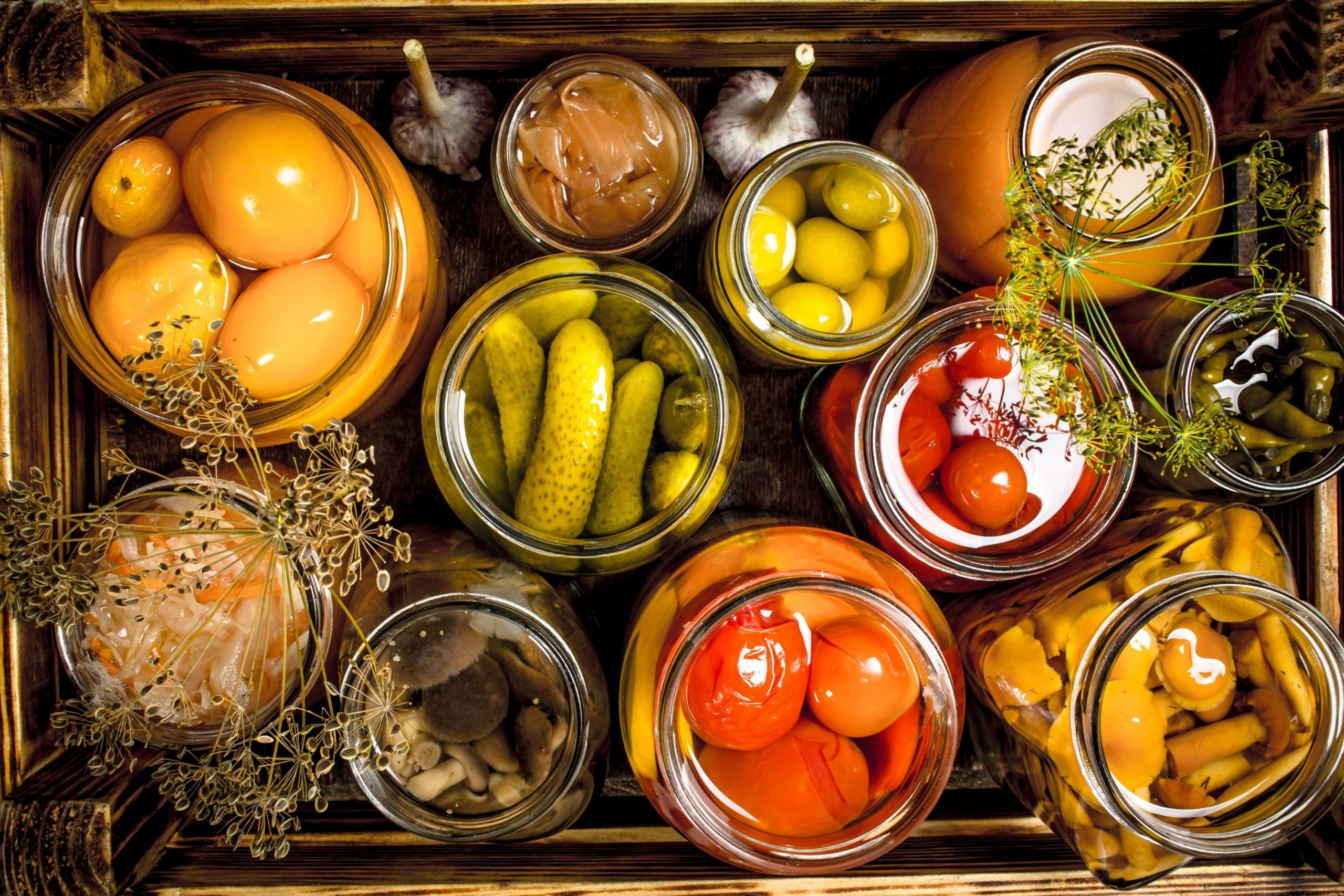
This is why we tried to make it short and present you with only the best veggies and other foods suitable for being canned.
- Beets
- Brussel sprouts
- Carrots
- Turnips
- Rutabaga
- Parsnips
- Sweet potatoes
- Greens
- Venison
- Chili
- Fruits and berries
As for the type of canning, you don’t have to make jams or something like that out of your fruits, for example.
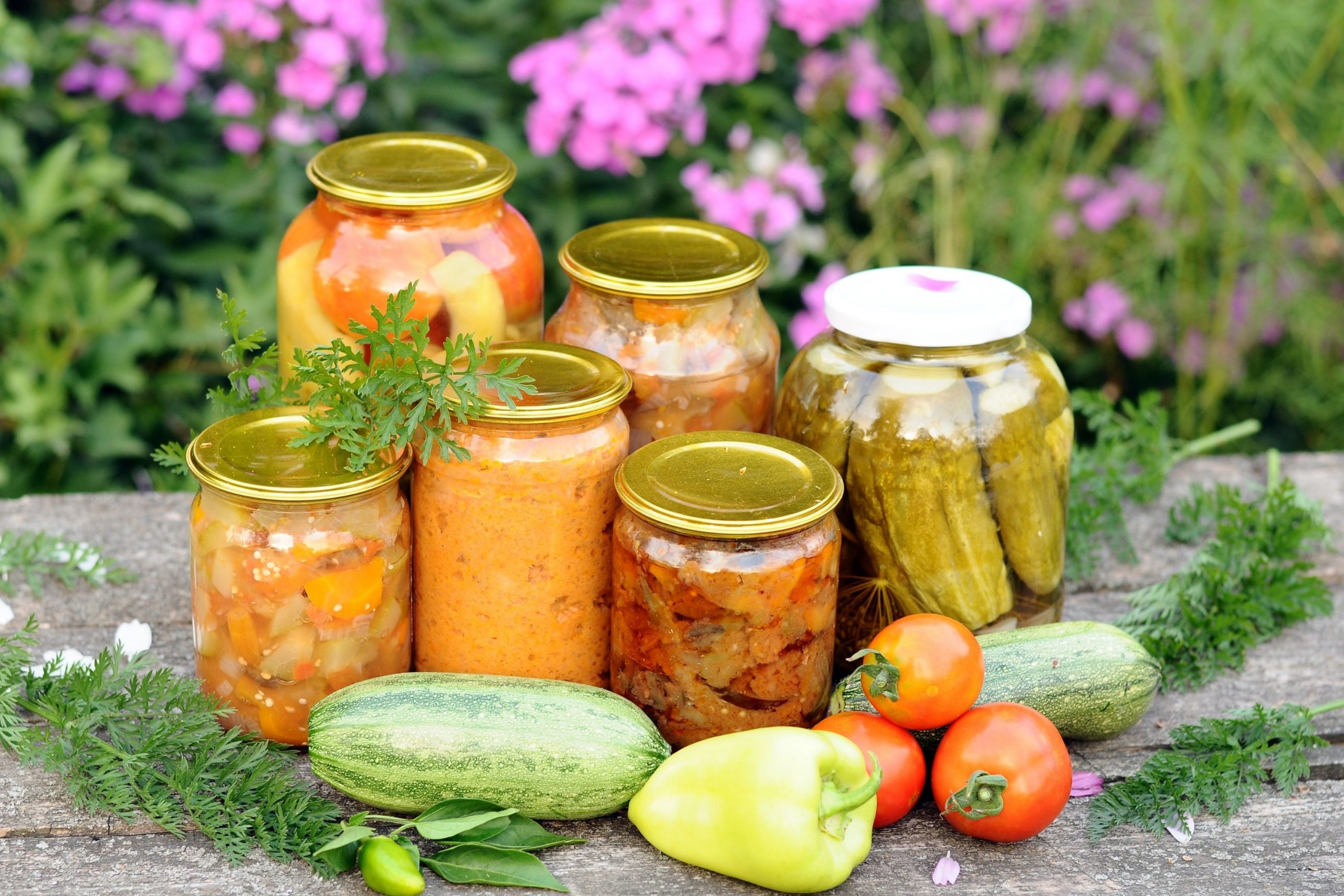
You can just put them (or the berries) into cans as they are, keeping them whole, and preserve like this. The same works for the veggies, by the way.
But of course, if you feel like going further, you can make soups and also preserve them by canning!
Like this, in winter you will save a lot of time for yourself when the time comes for cooking.
And in addition to the time-saving feature, preserving foods in cans also allows you to enjoy all the nutrients and vitamins throughout the winter time. And this is what our bodies lack so much when it is cold outside!
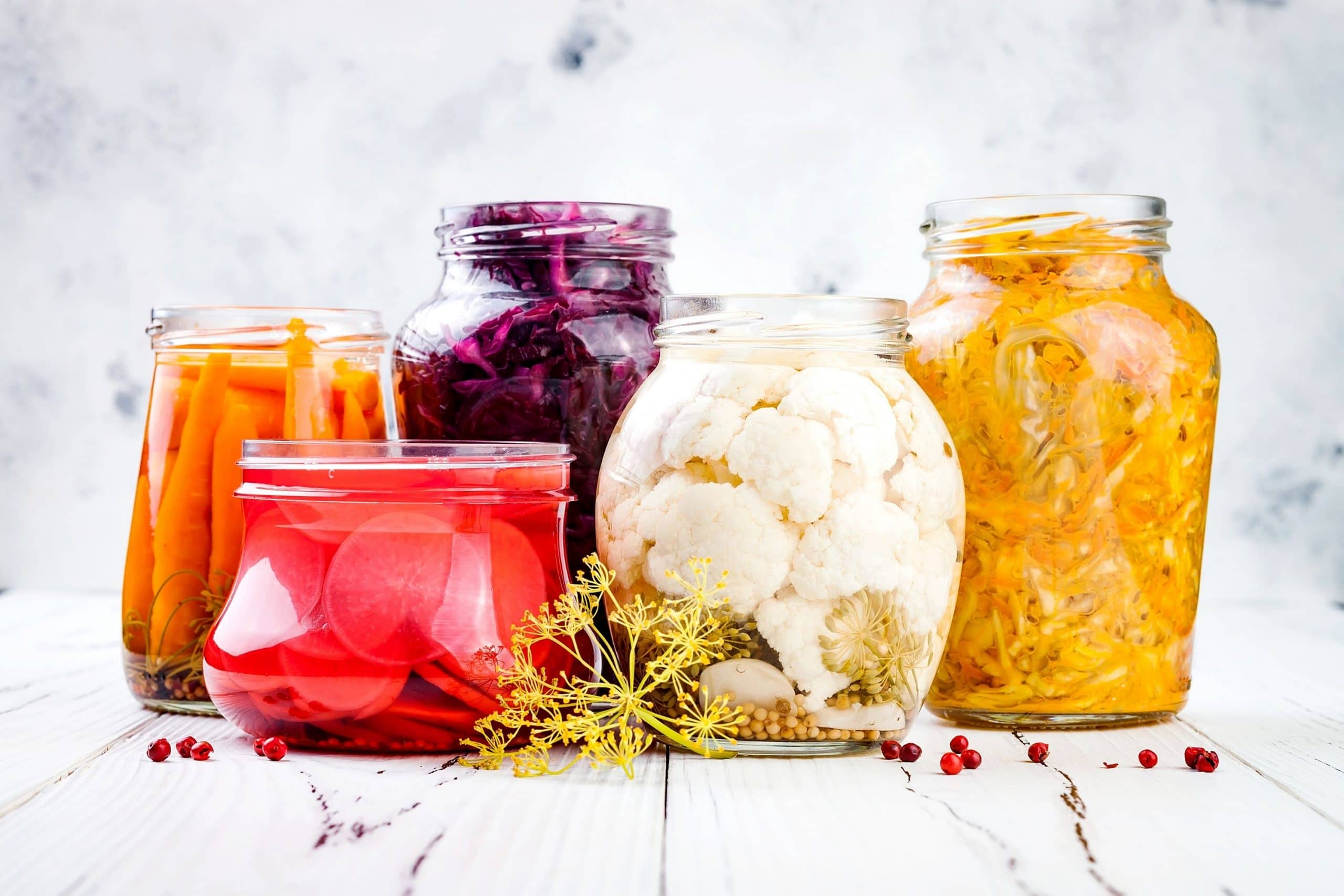
Are Canned Foods Useful?
To the canning newbies, it might seem weird that canned foods can be useful and beneficial!
There is that stereotype that only fresh (meaning raw) foods contain the most vitamins, minerals, and other beneficial nutrients that our bodies need for proper functioning.
And eating canned vegetables or fruits will never have the same use for us.
But is this true? Of course, canned foods are affordable, convenient, and don’t get spoiled easily.
But is this enough for preserving our food this way? Does it still bring us good health?
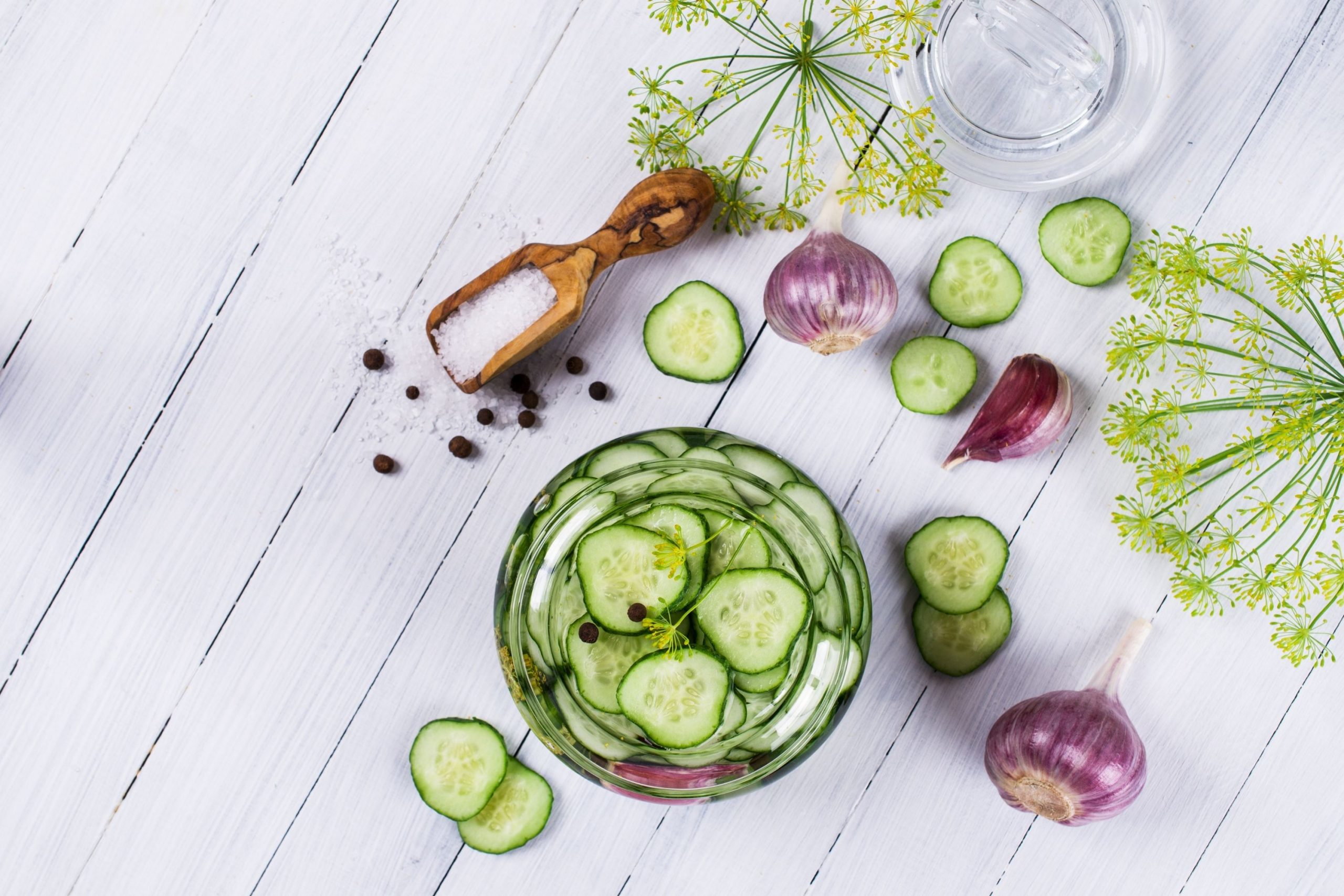
First of all, let us explain how canning affects nutrient level in foods. There is a belief that canning kills most of the food’s nutrients, but recent research shows that it is not always like that. In fact, canning preserves nutrients instead!
Protein, carbs, and fat remain unaffected during the process of canning.
Besides, the majority of fat-soluble vitamins, as well as minerals (for instance, A, D, E, K) remain untouched as well.
So it will be reasonable to conclude that the foods that are high in certain nutrients will maintain their level even after being canned.
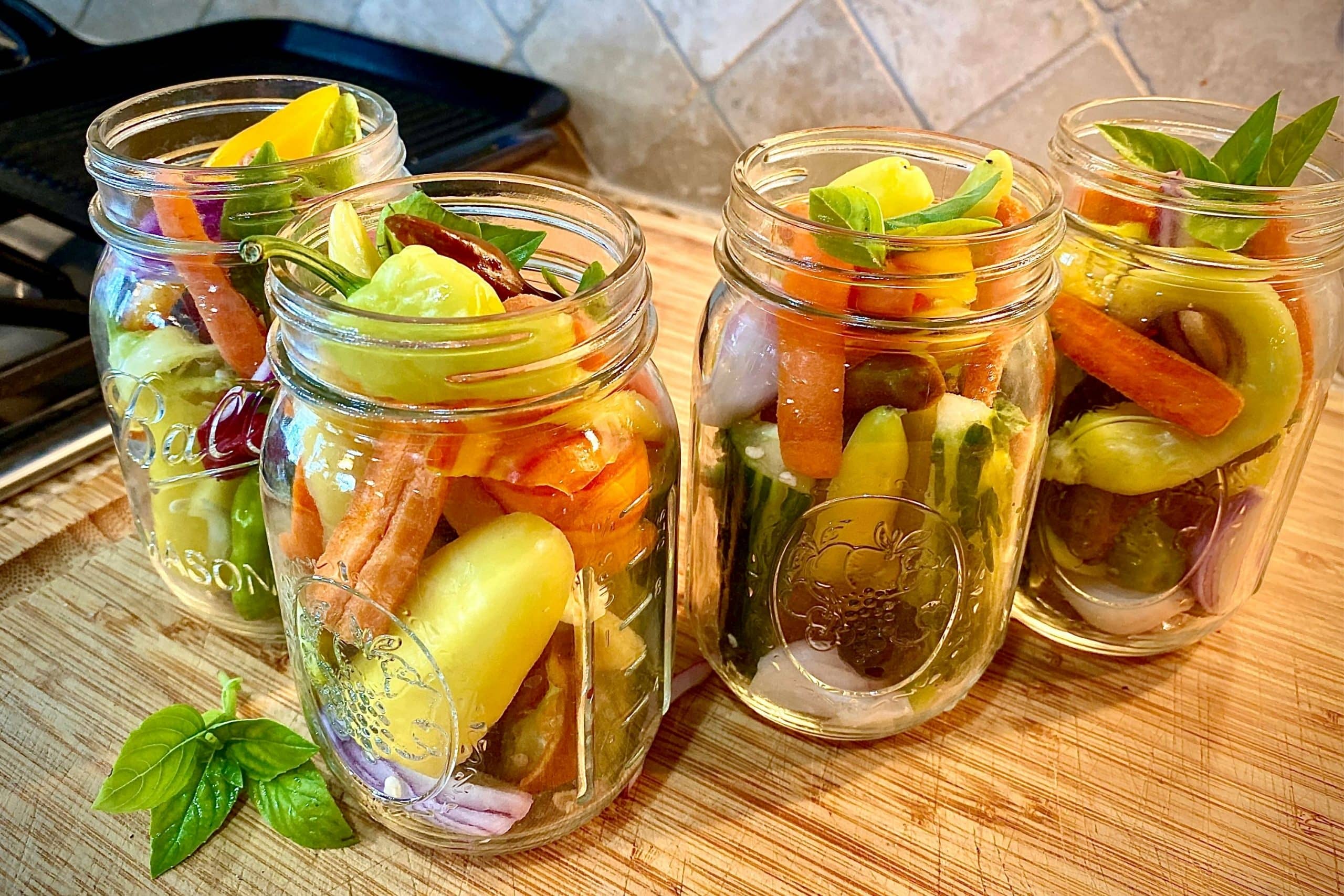
In addition, canning can even increase the amount of certain healthy compounds! For example, tomatoes and corn release more antioxidants when we heat them.
It means that canned tomatoes and canned corn will be healthier than the raw ones!
Nevertheless, there are many veggies that will not benefit from being canned.
They are mostly those that contain water-soluble vitamins, such as C and B that can be damaged by the high heat.
So if you hear someone saying that canned foods are not healthy, don’t believe that! This food is not just delicious, but it is also a healthy source of vitamins during the winter days.
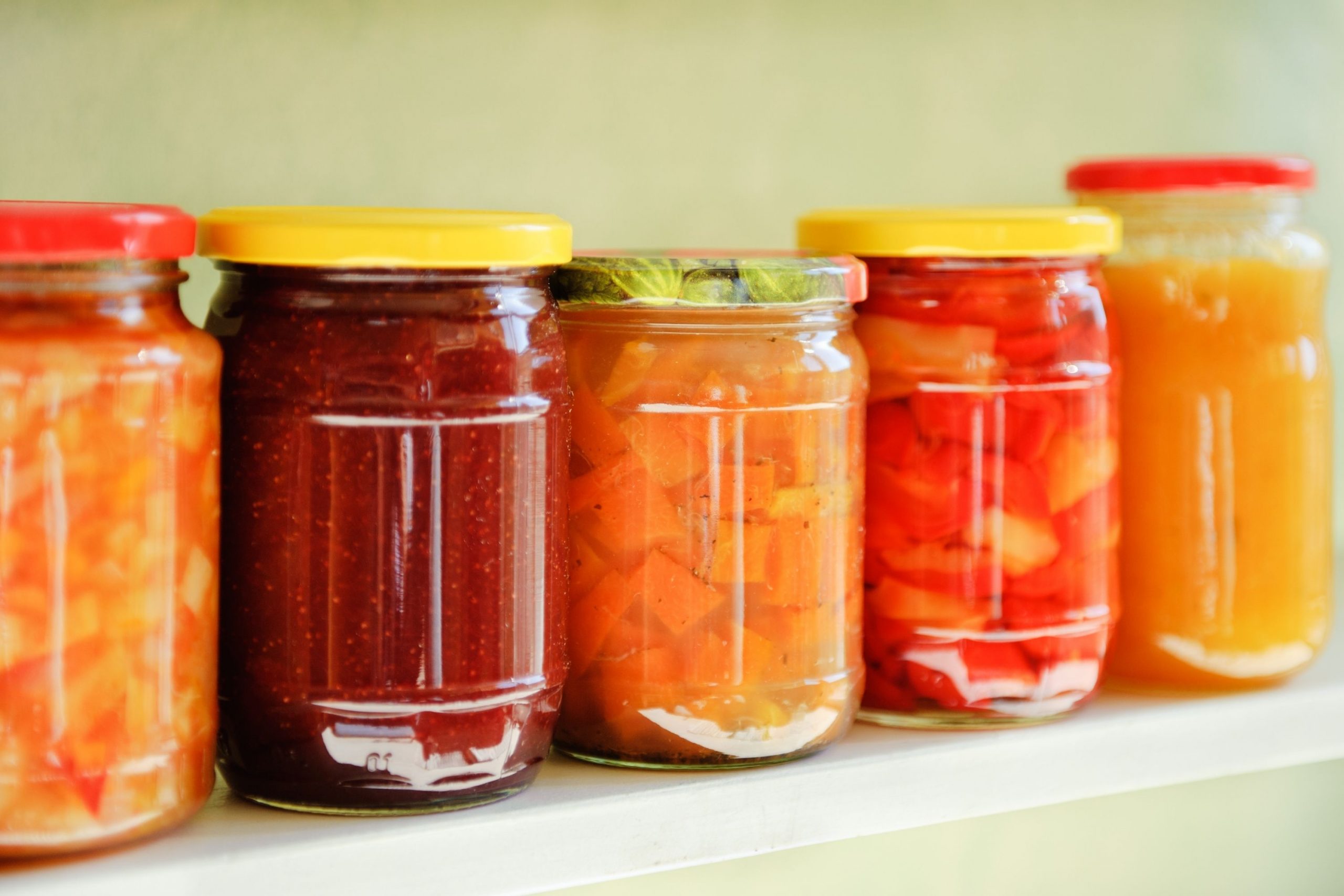
A Few Handy Tips On Buying Canned Foods
Not everyone has time and desire to spend hours in a hot kitchen canning.
This is why quite many of us prefer buying ready-made canned foods in supermarkets and stores.
However, since they are commercially made, you need to keep an eye on the ingredients list to make sure you eat healthy stuff!
- Choose a low sodium or no-salt-added products to decrease the salt intake
- To avoid extra sugar, choose fruits and berries that are canned in water or juice instead of syrup
- Draining and rinsing canned foods prior to eating them may also low down the level of salt and sugar in them
Like this, you will be sure that what you buy and eat is safe and beneficial for you!
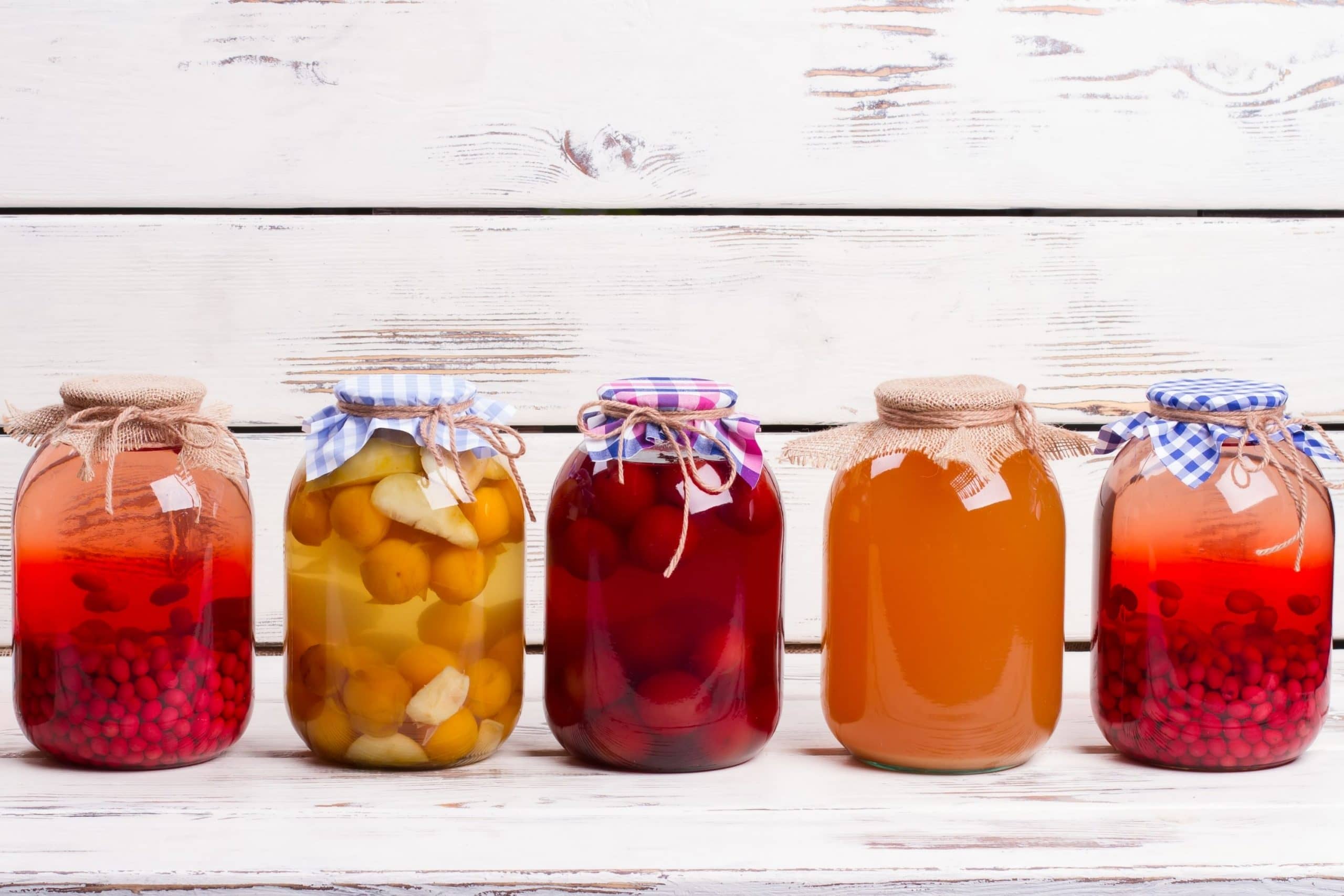
So, now you are informed about the canning season duration and you figured out that no stable dates are set for that.
We shared a few tips with you on how to prep for the canning rush, and what foods are the best ones for being canned at home.
Like this, you now can preserve foods by canning them to get enough nutrients during the winter.
[wp-faq-schema title=”Frequently Asked Questions”]
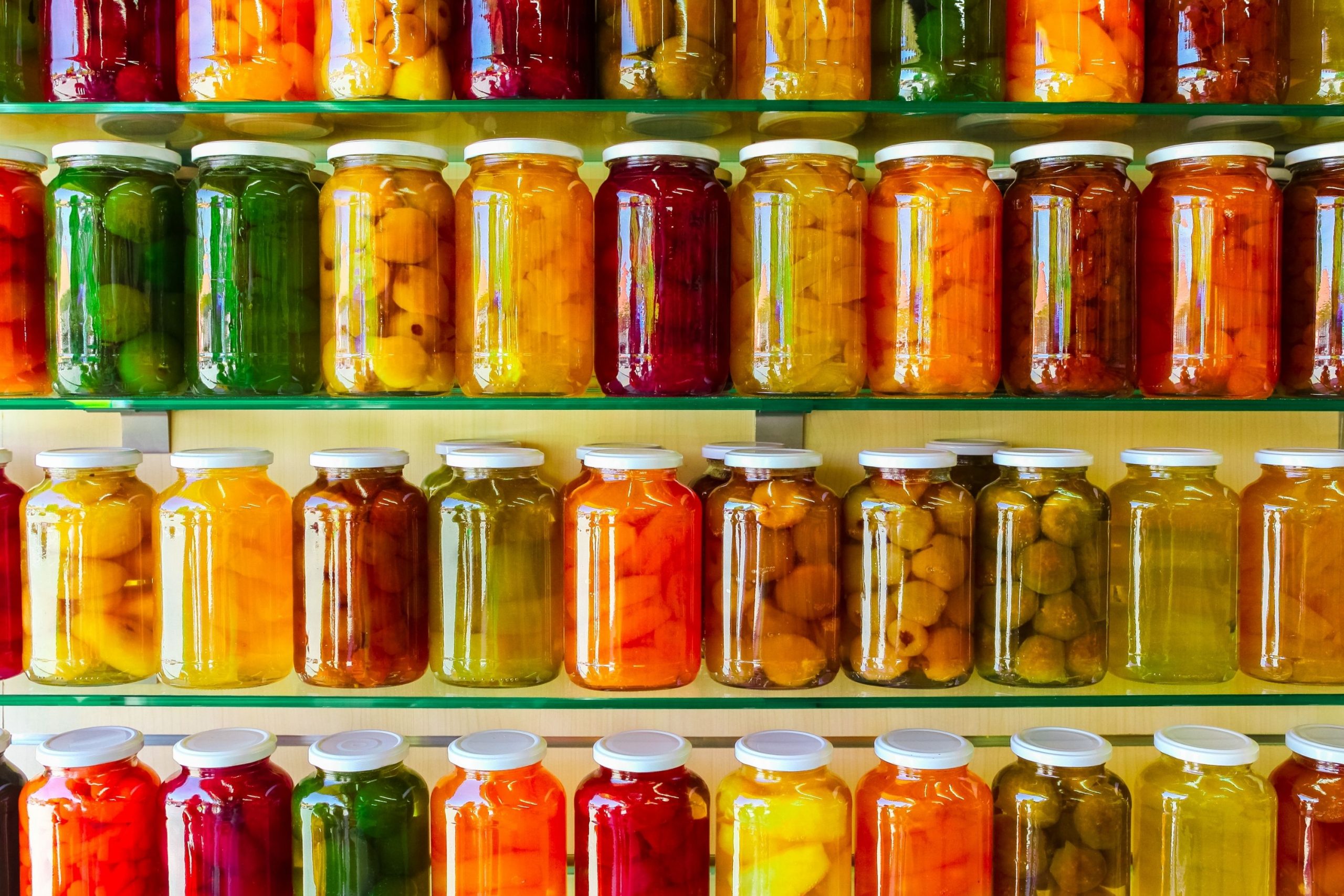
When is pear canning season? I’ve always thought it’s in summer, but since I can still see pears being sold in autumn, maybe, it’s ok to preserve them later than in August?
Surely you can start canning pears in September, moreover, it’s the month when Bartlett pears are ripe! But I guess, it also depends on the season since certain sorts of pears are harvested in summer as well.
Shall I buy all the new canning jars every year? Or it’s ok if I use jars from the previous year if they are still fine?
Of course, you can make use of the last year’s jars! If they are not broken, cracked, or have chips, it’s absolutely fine to utilize them. LIke this, you will save money on buying new ones.